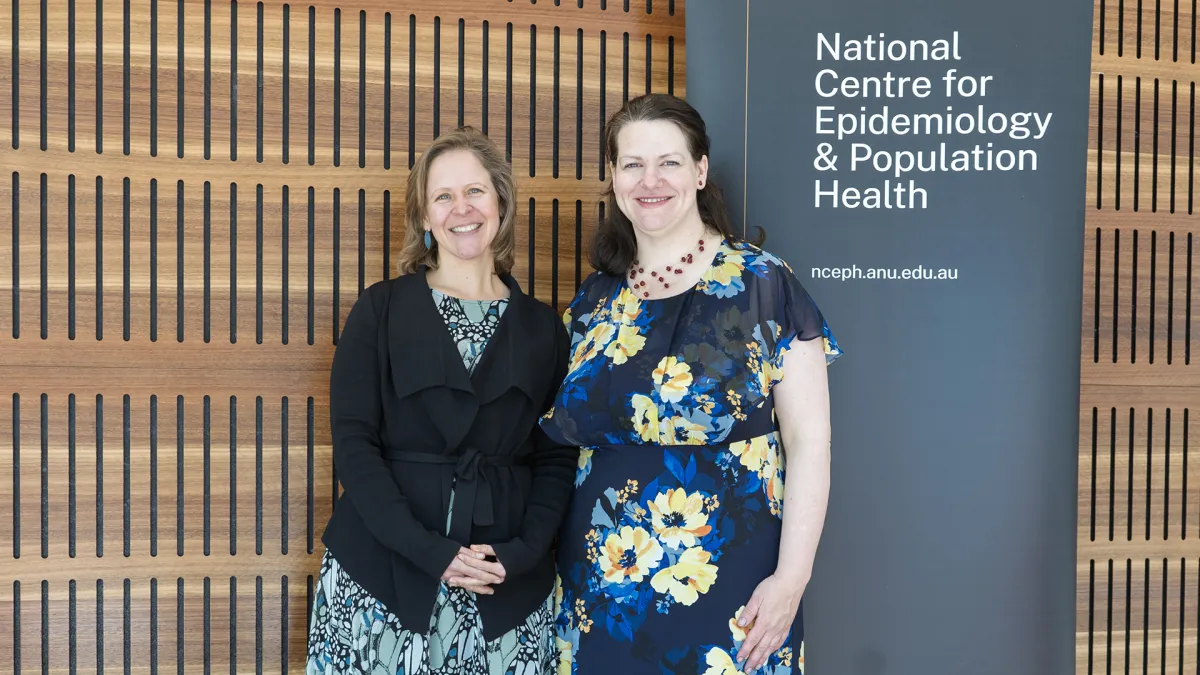McMichael Award supports researchers tackling impacts of climate change

Dr Amy Dawel from the School of Medicine and Psychology and Dr Annabel Dulhunty from Crawford School of Public Policy have been jointly awarded the McMichael Award – a research and leadership initiative that aims to address the health challenges arising from climate change.
Dawel will generate new knowledge about child mental health in the aftermath of catastrophic environmental events by exploring the critical role of caregivers’ couple-level coping. The study will capitalize on a unique dataset of over 100 couples that was collected in 2022.
“I’m interested in how these couples help each other manage stress within the relationship, and how their ability to do that then helps their child thrive, both in terms of their mental health and physical health,” says Dawel.
“We are now facing a time where extreme weather events are going to become more and more common, whether that's a bushfire, flood, or extreme temperatures. These are placing increased stress on people, which has knock-on effects for their local communities. We need to be using this information to build resilience and resources that help minimise impacts on family’s mental and physical health.”
Dulhunty’s project focuses on climate affected communities in India. Her research shows that while there are many different climate adaptation plans, very few look at the needs of marginalised groups within a community including women, the elderly, or those with disability.
The McMichael Award will enable Dulhunty to delve more deeply into the connections between climate change and women's health and wellbeing, particularly their vulnerability to violence and their overall health outcomes in these climate affected communities.
“There is a clear link between climate change and violence against women, we have less scholarship on the diverse policy responses and the different ways climate adaptation plans and strategies can respond to the needs of women and the most vulnerable in disasters,” says Dulhunty.
This prestigious award is named in honour of the late Professor Tony McMichael AO. McMichael was a former Director of the National Centre for Epidemiology and Population Health (NCEPH), joint winner of the Nobel Peace Prize, and world authority on the impact of the environment on human health.
"Climate change is now upon us. The next few decades will be critical," says Associate Professor Judith Healy, wife of the late McMichael and generous financial contributor to the award endowment.
"Our world needs a next generation of researchers to tackle and collaborate on the huge threats that face us, but also promising opportunities to promote better population health."
NCEPH are proud to be hosting the McMichael Award, and supporting this next generation of researchers.
“I feel particularly honoured and privileged to do this alongside Annabel,” says Dawel.
“I am also thrilled to have the capacity to help train the next generation of researchers by involving students in my work. I see a lot of talent around me, but not always the opportunity for these students to work on big research projects. Through this project, students will help make a meaningful contribution to our community – which is just so exciting.”
The McMichael Award is made possible through generous donations. We are seeking more funding partners to help build the McMichael endowment to create an international award and fellowship program for the next generation of public health leaders. Find out more about how you can contribute.
